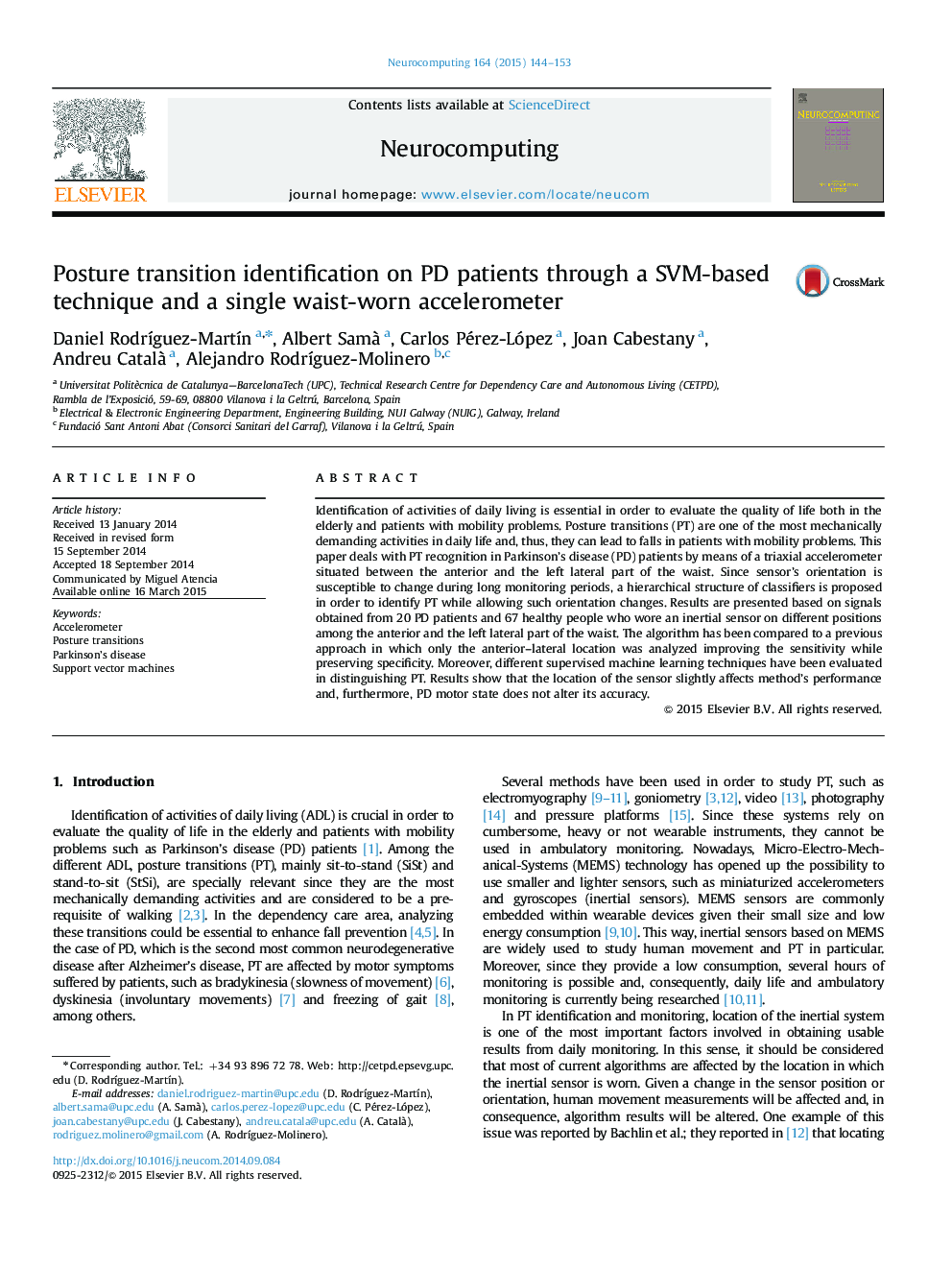| کد مقاله | کد نشریه | سال انتشار | مقاله انگلیسی | نسخه تمام متن |
|---|---|---|---|---|
| 406434 | 678084 | 2015 | 10 صفحه PDF | دانلود رایگان |

• Posture transition identification is performed by means of a tri-axial accelerometer located in the waist.
• A hierarchical structure of classifiers allows to determine the human posture.
• SVM techniques have been used to set parameters of the algorithm.
• The algorithm allows different locations along waist’s left side.
• The algorithm is focused on Parkinson’s disease patients.
Identification of activities of daily living is essential in order to evaluate the quality of life both in the elderly and patients with mobility problems. Posture transitions (PT) are one of the most mechanically demanding activities in daily life and, thus, they can lead to falls in patients with mobility problems. This paper deals with PT recognition in Parkinson’s disease (PD) patients by means of a triaxial accelerometer situated between the anterior and the left lateral part of the waist. Since sensor’s orientation is susceptible to change during long monitoring periods, a hierarchical structure of classifiers is proposed in order to identify PT while allowing such orientation changes. Results are presented based on signals obtained from 20 PD patients and 67 healthy people who wore an inertial sensor on different positions among the anterior and the left lateral part of the waist. The algorithm has been compared to a previous approach in which only the anterior–lateral location was analyzed improving the sensitivity while preserving specificity. Moreover, different supervised machine learning techniques have been evaluated in distinguishing PT. Results show that the location of the sensor slightly affects method’s performance and, furthermore, PD motor state does not alter its accuracy.
Journal: Neurocomputing - Volume 164, 21 September 2015, Pages 144–153